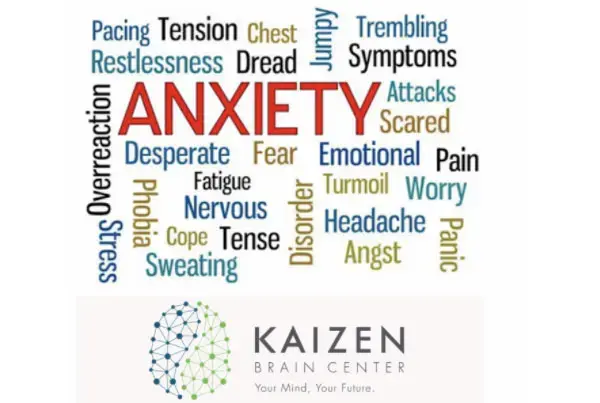
Anxiety is defined as a feeling of intense, persistent worry or fear of a situation that is often characterized by increased blood pressure, heart rate, breathing, and sweating. Having anxiety is a normal part of a daily range of emotions, as we often employ this mechanism in response to stressful events. However, for those subjected to anxiety disorders, the symptoms are much more severe and longer lasting.
With several known variations of anxiety disorders documented, it is vital to understand the unique characteristics of these disorders and what consequently leads to their formation in patients.
- General Anxiety Disorder (GAD): Among the most common of the disorders, GAD involves abnormally long periods of anxiety and worry concerning non-specific life events, situations, or objects.
- Panic Disorder: These are sudden, rapid attacks of fear and terror to the person, often defined by shortness of breath, nausea, dizziness, and heart palpitations. This disorder can be triggered by long episodes of stress or genuinely frightening experiences.
- Specific Phobia: This is an intense fear of specific situations or objects, usually going outside of what is ordinary such as a daily activity the average individual participates in or a common household item.
- Agoraphobia: This form of phobia occurs when an individual has a deep-seated fear of situations or settings they see as difficult to escape and easy to be trapped in. Environments such as elevators, public transportation, or enclosed places can trigger this.
- Social Anxiety: This disorder is characterized by crushing feelings of worry and self-consciousness in social settings.
- Selective Mutism: This is a specific form of social anxiety in which individuals who are normally capable of speaking are unable to do so under specific circumstances. A common occurrence is found in children who speak freely at home with their family but do not speak while in a classroom setting.
- Separation Anxiety: Individuals with this disorder experience overwhelming fear when a person close to them leaves them alone for any length of time or worry that something terrible may have occurred to said person.
- Medication/Substance-Induced Anxiety: In some specific medications or drugs, symptoms of anxiety can arise from the overuse of or withdrawals from alcohol, caffeine, cannabis, amphetamines, and others.
Ultimately, the importance of not only identifying anxiety disorders but also understanding their root causes is the first step towards an effective treatment plan.
